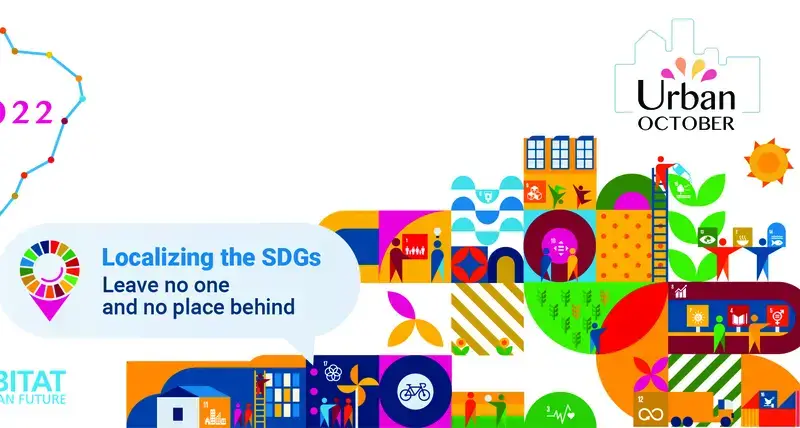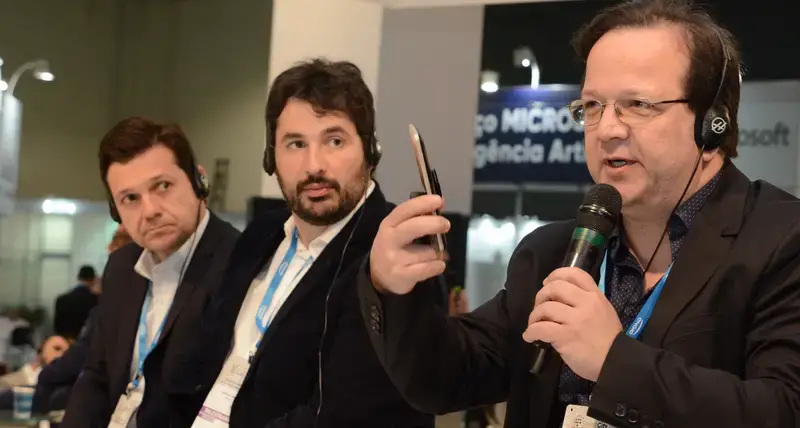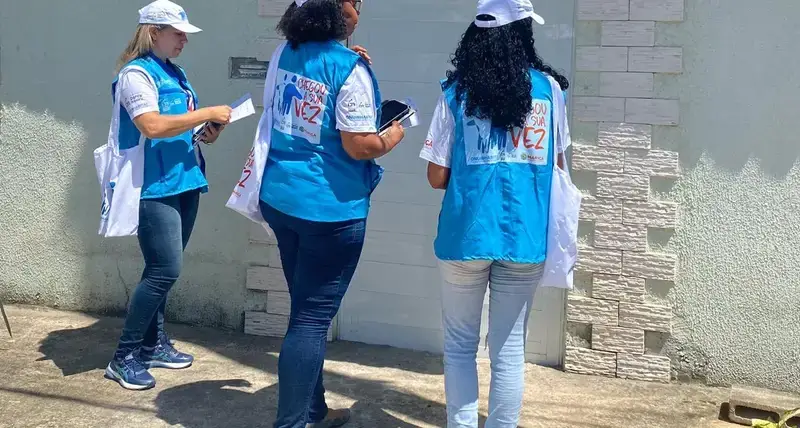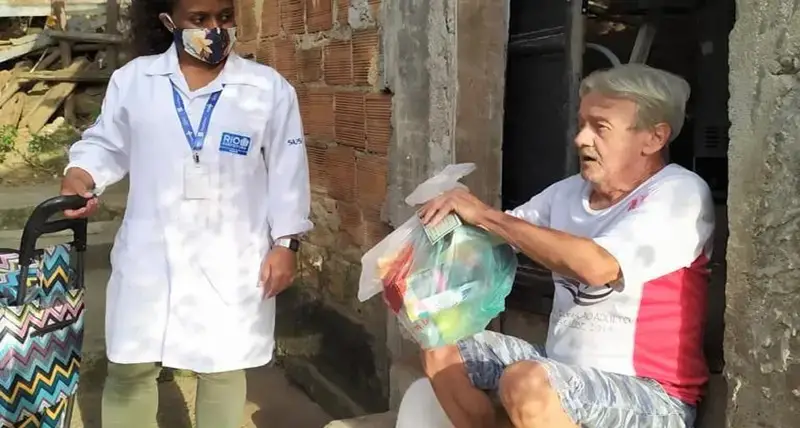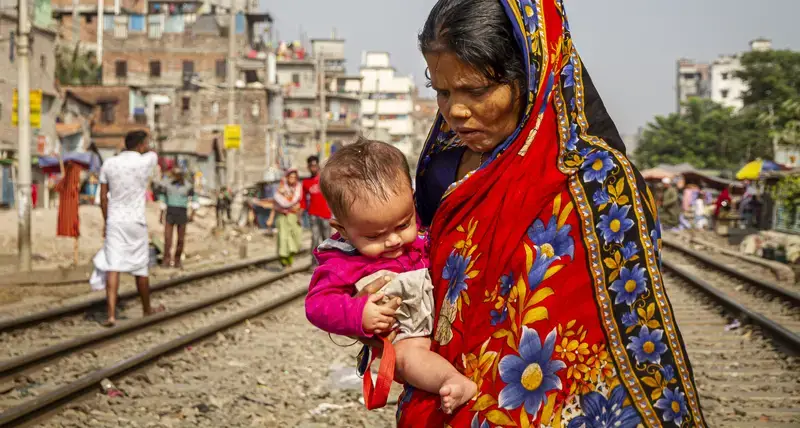Since 1996, UN-Habitat is based in Rio de Janeiro, Brazil, with its Regional Office for Latin America and the Caribbean. Since 1996, UN-Habitat’s role has been to support sustainable urban development and right to housing in Brazil, as well as to disseminate the Sustainable Development Goals (SDGs) and the principles of the New Urban Agenda. For over 20 years, the office in Brazil has been implementing projects promoted and funded by international donors and/or the beneficiaries themselves in a broad range of areas: informal settlements, sustainable energy, mobility, urban planning, open data, climate action, public spaces, urban indicators, urban legislation, youth, resilience, urban services and others.
Impact
Urban numbers
Challenges
Brazil has 87% of its people living in cities, and the country is the tenth most unequal country in the world, presenting a growing rate of poverty (26.5%) and extreme poverty (7.4%). Although poverty rates are globally and regionally higher in rural areas, Brazilian poverty has a predominantly urban face with 72% of the poor living in urban areas and 6.9% of urban population lives at informal settlements* (up to 22.15% in Rio de Janeiro and 54.47% in Belém); if inadequate housing is considered, the indicator will reach 41.4%.
Most of its urban problems are related to unequal distribution of income and the unplanned and rapid urbanization, highly concentrated in the Brazilian coast (urban population is concentrated in only 0.63% of the national territory). Both aspects help to increase rates of housing deficit and violence: housing deficit of approximately 6.5 million houses, although there are approximately 8 million empty houses; 153 violent deaths per day in the last 10 years – violent deaths were responsible for more than 50% of 15-19-year-old deaths. The scenario of extensive inequality and informality hinders the access to services such as sewage, water supply and waste collection, as well as impacting mobility, therefore causing major consequences for the environment and quality of life in the Brazilian cities.
Country Beneficiaries
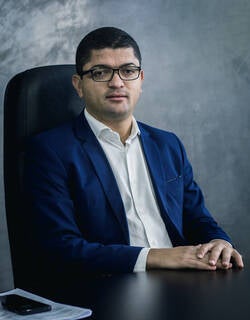
“Building an official database with quality and disaggregated information on informal settlements in the “grotas” (slums) in Maceió is a challenge that the state of Alagoas needs to overcome. The Quick Participatory Mapping methodology is a major contribution of the project implemented by UN-Habitat in our state. It will provide local public servants with information to promote an evidence-based agenda of public policies in line with the pursuit of the Sustainable Development Goals (SDGs), as well as their targets and indicators.”
Fabrício Marques Santos, Secretary of Planning, Management and Estate at the State of Alagoas
Donors and partners
Most of the projects in Brazil are technical assistance undertaken through partnerships with municipalities and state governments in a diverse range of urban themes. In many of those projects, academia has an important role on providing evidences through specialised research, collecting data and monitoring indicators; while civil society has been essential to guarantee participatory processes and mobilising groups or communities. Throughout the years, strong relationship with the national government and nationwide organizations has also been crucial to raise awareness and support urban and regional development policies and initiatives on a federal level. Partnerships with the private sector has been important to support social responsibility initiatives and disseminate global agenda.
Contact
Legacy content
- Total value of UN-Habitat investments (2008-2013): US$ 10,119,166
- Total number of UN-Habitat projects (2008-2013): 8 projects
- Main donors: Fundacao Vale, Prefeitura da Cidade do Rio de Janeiro (PCRJ), Fundacao Euclides da CUNHA (FEC), BASF Social Foundation (Germany), MDG Fund (Spain-UNDP), Brazil, Instituto Pereira Passos, FSADU
- Implementing partners: ILO, UNDP, UNFPA, UNICEF, and UNIFEM, The Special Secretariat of Policies for Women (SPM), the Special Secretariat for Policies to Promote Racial Equality (SEPPIR), Organizations of civil society (OCSs), especially those linked to movements of feminists, and of young and black women, PETROBAS, Federal Fluminense University (UFF) & FEC, Municipalities, Brazilian Government agencies and ministries
General information
Capital: Brasilia Major cities: Sao Paulo, Rio de Janeiro, Salvador, Belo Horizonte, Fortaleza, Brasilia, Curitiba, Recife, Porto Alegre, Manaus
- Population: 198.7 Million
- GDP: US$2.253 Billion
- GDP growth: 0.9%
- Urban population (annual %): 85%
- Population growth rate (average annual %): 0.9%
- Urban population growth rate (average annual %): 1.2%
- Rural population growth rate (average annual %): -0.9%
Source: World Bank 2012
UN-Habitat projects in Brazil
Analysis of energy consumption & energy efficiency in informal settlements of developing countries
Objective of the project
To establish the level of energy access in informal settlements; make recommendations on appropriate energy services as well us come up with interventions to improve the quality of life in informal settlements within developing countries.
Service sectors covered by the project include: energy access, buildings, academia, policy and legislation, housing finance.
- Duration: 3 October 2013 to 31 December 2016
- Value: EUR 15,000
- Donor: Fondozione Politecnico di Milano, and UN-Habitat,
- Implementing Partners: Fondozione Politecnico di Milano and UN-Habitat
Promoting Urban Low Emission Development Strategies (Urban LEDS)
The Project was initiated to support innovative strategies in addressing the urban dimension of climate change in cities in emerging economies. The objective of the Project was to enhance the transition to low emission urban development. In Brazil it supported two Model Cities, Fortaleza and Recife, as well as six Satellite Cities. The Brazil cities successfully integrating LED methods, design and products into city improvement initiatives that were part of strategy development. Innovative initiatives included the integration of the cities’ water bodies in the city development plans and strategies, green building policies and product development, awareness of the politics and science of climate change, and training to carry out emissions inventories to comply with the new Global Protocol on Community-Scale GHG Emission Inventories. To reduce emissions, the public transport system in Recife was diversified to include river transport, bike lanes, bus corridors and bike sharing stations.
- Duration:March 2012-March 2016
- Value:€ 6.700.000 (Multi-country)
- Donor:European Commision
- Implementing Partners: National government,respective local governments,ICLEIFor further information ,please click here
Inter-Agency Programme for Promotion of Gender and Racial/Ethnic Equality (i) Enhancement of crosscutting themes of gender and race in policies, programmes, & public services considering the gender equality as an important element in human settlements development ; (ii) Capacity building at the sub-national level, to strengthen and integrate actions aimed at promoting gender and racial equality.
- Duration: 3.5 years (Jun 2009 - Dec 2012)
- Value: US$ 170,677
- Donor: MDG Fund (Spain)
- Location: National level
- Implementing partners: ILO, UNDP, UNFPA, UN-HABITAT, UNICEF, and UNIFEM, SPM, SEPPIR, Organizations of civil society (OCSs), especially those linked to movements of feminists, and of young and black women.
Strengthening activities of the Youth and Gender Assemblies To strengthen UN-HABITAT visibility regarding the work done by the Agency related to youth and gender at the WUF5.
- Duration: 1 month (Nov 2010 - Dec 2010)
- Value: US$ 107,000
- Donor: Fundacao Vale
Regional Urban Observatory in the Eastern Fluminense To contribute to sustainable and inclusive development of the area by the COMPERJ enterprise, strengthen the local competences for decision making and implementation of public policies, facilitating poverty reduction, through promotion and capacity development of how to use the MDGs and the principles of the Global Compact in policy development
- Duration: 4 years (Jan 2008 - Dec 2011)
- Value: US$ 329,433
- Donor: Fundacao Euclides da CUNHA (FEC)
- Location: the eleven municipalities of CONLESTE
- Implementing partners: PETROBAS, Federal Fluminense University (UFF) & FEC
Support to Community Development and Youth Entrepreneurship in Vila Brasilandia, Municipality of Sao Paulo, Brazil To support Community Development and Youth Entrepreneurship in Vila Brasilandia, Municipality of Sao Paulo, Brazil
- Duration: 4 years (May 2009 - Jun 2013)
- Value: US$ 234,450
- Donor: BASF Social Foundation (Germany)
- Location: Community of Vila Brasilandia, Sao Paulo
- Implementing partners: (i) the community of Vila Brasilandia, (ii) BASF Social Foundation (BSF), (iii) BASF S.A., in Sao Paulo, Brazil, (iv) the Municipality of Sao Paulo (PCSP), through the Municipal Secretariat for Housing (SMH), (v) the Government of the State of Sao Paulo (GESP), (vi) SEBRAE, Real Bank
Contribution to the UN Joint Programme "Security with Citizenship in Brazilian Communities" Reduction of the violence that affects children,youth, and adolescents in a situation of vulnerability.
- Duration: 3 years (Jul 2010 - Jun 2013)
- Value: US$ 728,148
- Donor: MDG Fund (Spain-UNDP)
- Implementing partners: UNCT Brazil, UNDP, UNODC, UNICEF, UNESCO, ILO,
Social Reintegration of 30 Pacified Favelas - Safer Rio To support the implementation of UPP (Pacifying Police Units) Developing and implementing methodologies for participatory planning and knowledge management.
- Duration: 3 years (Jun 2011 - Jul 2014)
- Value: US$ 7,673,504
- Donor: Brazil, Instituto Pereira Passos, Prefeitura da Cidade do Rio de Janeiro
- Location: Rio de Janeiro (30 identified slum areas)
- Implementing partners: Instituto Pereira Passos, Rio de Janeiro municipality
Monitoring the MDGs at the municipal level in the states of Rio de Janeiro and Maranhao and strengthening local capacities on public policies To contribute to local sustainable development in the municipalities identified, where large-scale petrochemical industrial activities are being built. To monitor the impact of the installation of the petrochemical complex COMPERJ in Itaboraí (State of Rio de Janeiro) and of the refinery Premium I in Bacabeira (State of Maranhão) on the basis of local targets and indicators of the MDGs. To support the implementation of public policies, plans and programs and make possible for Petrobras to monitor the impacts of its industrial activities
- Duration: 1.5 years (Dec 2011 - Jun 2013)
- Value: US$ 584,458
- Donor: Fundacao Euclides da CUNHA (FEC) & FSADU
- Location: 11 municipalities in the State of Rio de Janeiro, Brazil: Cachoeiras de Macacu, Casimiro de Abreu, Guapimirim, Itaboraí, Magé, Maricá, Niterói, Rio Bonito, São Gonçalo, Silva Jardim and Tanguá. 4 municipalities in the Sate of Maranhão, Brazil: Bacabeira, Rosário, Santa Rita and São Luis
Impact of Economic Development on Urbanization Process in Brazil To document and inform the development of a platform for dialogue (mainly during Rio + 20 and the World Urban Forum) on sustainable and inclusive cities in rapid exonomic growth contexts, generating opportunites and challenges for sustainable urban development.
- Duration: 2.5 years (May 2012 - Dec 2014)
- Value: US$ 291,496
- Donor: Brazil
- Implementing partners: Brazilian Ministry of Cities & Ministry of Environment, ABC Brazilian Agency for Cooperation/ Ministry of Foreign Affairs
